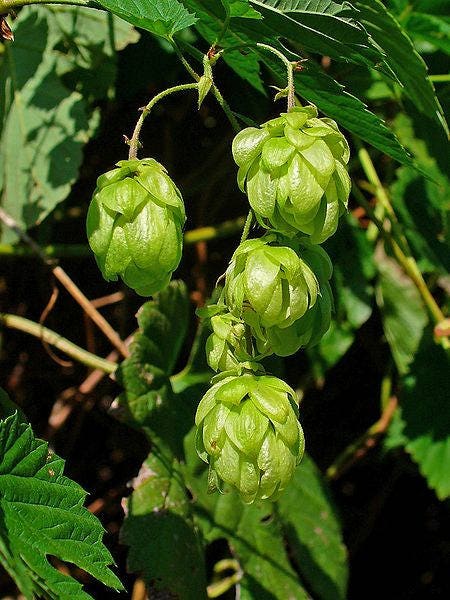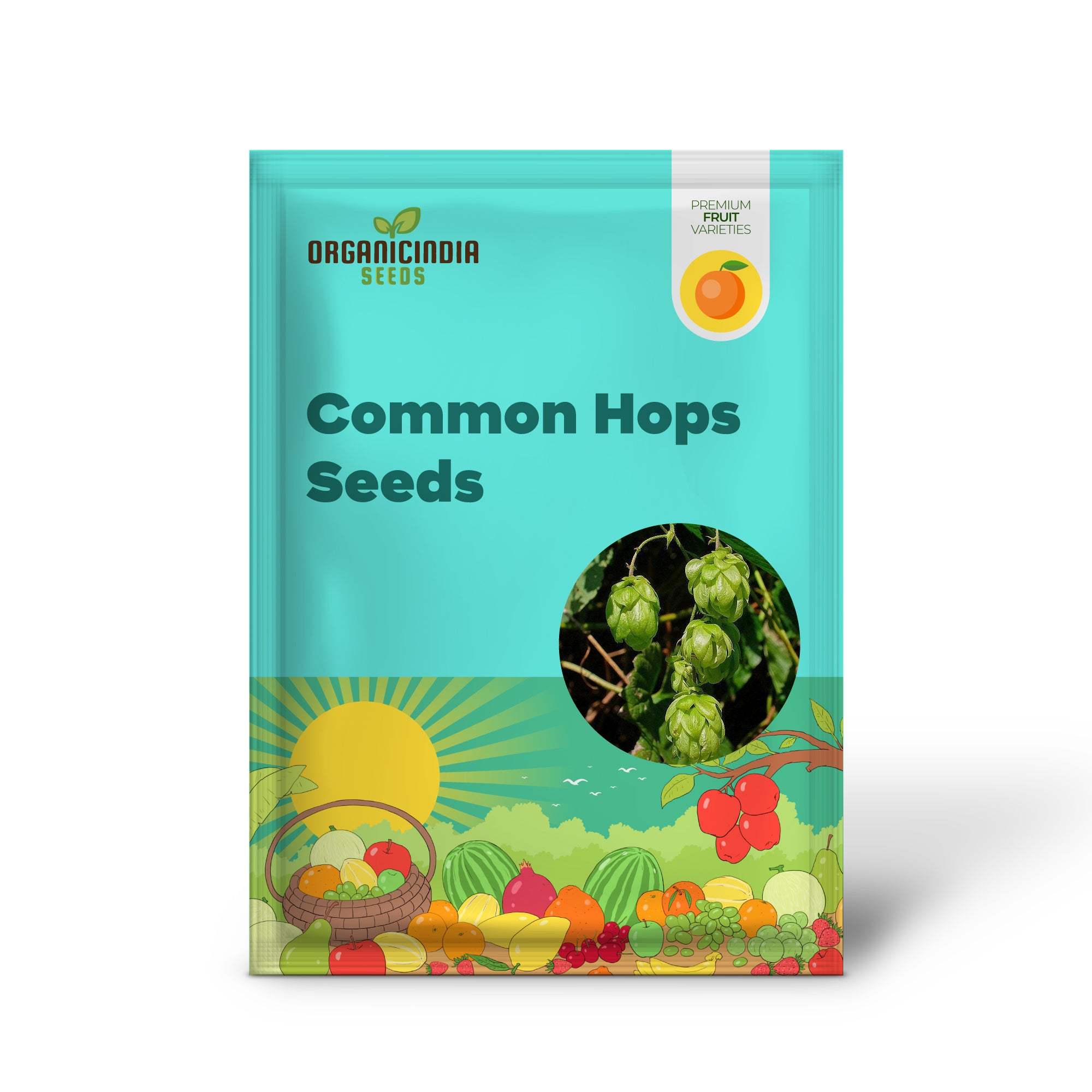



Free Shipping
Safe & Secure Payments
Common Hops (Humulus lupulus) are an essential ingredient in brewing beer, known for adding both flavor and aroma, as well as for their natural preservative qualities. The hop plant is a fast-growing vine that produces aromatic flowers, which are harvested to create the signature bitterness and complex flavor profiles in beer. Ideal for homebrewers and gardening enthusiasts, these seeds allow you to grow your own hop vines for a fresh, homegrown brewing experience. In addition to beer production, hops are also valued for their medicinal properties, offering a range of uses in herbal remedies. Growing hops in your garden adds beauty with its vigorous growth, large leaves, and attractive cones.
Key Features:
Growing Information:
Light:
Hops require full sun to thrive. They need at least 6-8 hours of direct sunlight each day to produce the highest quality cones. Ideally, plant hops in a sunny location with plenty of room for vertical growth.
Soil:
Hops prefer rich, well-draining soil that is slightly acidic to neutral, with a pH between 6.0-7.0. Amending the soil with organic compost or well-rotted manure will improve fertility and promote healthy growth. Well-draining soil is essential to prevent root rot, so avoid planting hops in waterlogged areas.
Planting Tips:
Start hop seeds indoors 6-8 weeks before the last frost, or sow them directly outdoors once all danger of frost has passed and the soil has warmed. Sow the seeds 1/4 inch deep in trays filled with a well-draining seed-starting mix. Once the seedlings are large enough, transplant them outdoors in a location with plenty of space for vertical growth, such as a trellis, fence, or other support structure. Space the vines about 3-4 feet apart to allow them room to grow.
Watering:
Hops need regular watering, especially during their active growing season. Keep the soil consistently moist but not soggy. Ensure proper drainage and water deeply, particularly during hot, dry spells. Hops are relatively drought-tolerant once established but perform best with consistent moisture, particularly when they are developing cones. Mulching around the base of the plants helps retain moisture and keeps weeds at bay.
Benefits:
Growing Zones:
Common Hops (Humulus lupulus) thrive in USDA Hardiness Zones 4-9. They are well-suited to temperate climates, where winters are cold and summers are warm but not excessively hot. In colder zones, hops may need winter protection, while in hotter zones, they can benefit from some afternoon shade. Growing hops in containers is an option for gardeners in zones with harsh winters or limited space.
How to Use in the Garden:
Conclusion:
Common Hops (Humulus lupulus) are an excellent addition to any home garden, offering both beauty and practicality. Not only do they provide a fresh, homegrown ingredient for brewing your own beer, but they also add vertical interest to your garden with their rapid growth, fragrant flowers, and cascading vines. Easy to grow and low-maintenance once established, hops can be an enjoyable and rewarding crop for homebrewers and gardeners alike. Whether you're a seasoned brewer or simply looking to add a unique, productive vine to your garden, growing hops is a fun and flavorful way to enjoy your garden's bounty.
Choose options

